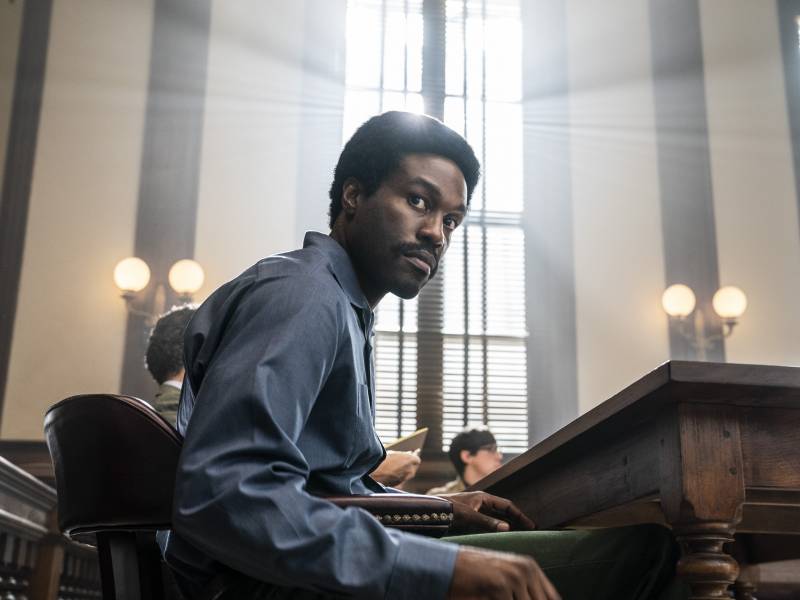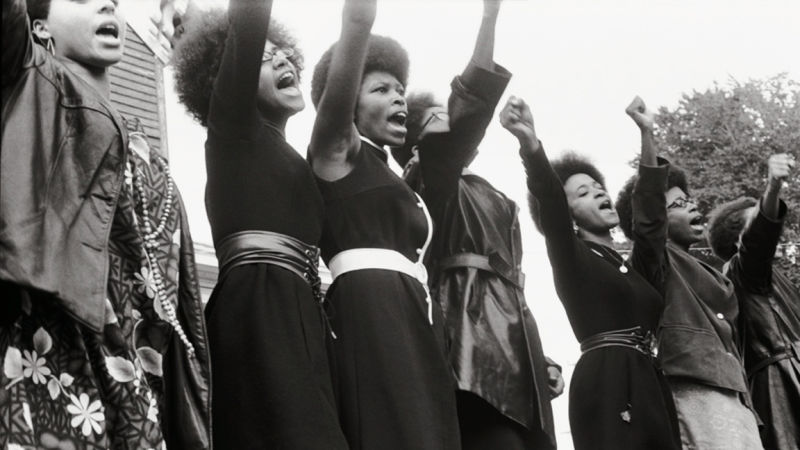“I think it could also potentially be argued that Bobby Seale goaded the judge into silencing him in that violent way,” Yahya Abdul-Mateen II, who plays Seale in the film, told NPR’s All Things Considered. “And that was a powerful move by Bobby Seale by outsmarting the judge, by outsmarting his oppressor, and he did it by speaking out in court, by being disruptive, by demanding justice, by demanding the rights that are afforded to him through the Constitution. And I think there’s a lesson to be learned about that, about one being educated about your own circumstances, being educated about the law, but then also the follow up is when you have the courage to stand up and speak through your conviction.”
Abdul-Mateen II told NPR’s Michel Martin about the connection between the film and the current fight for racial justice, and the weight of portraying such an important figure in U.S. history.
Interview Highlights
On playing Bobby Seale
It began to take on more meaning for me once I went and I looked up interviews of Bobby Seale. I really learned or started to get an idea for the dignity that this man had and about how he was robbed of his dignity during that trial. And I wanted to do two things with this role: I wanted to represent for Oakland [where Abdul-Mateen II grew up and where the Black Panthers were founded] and I wanted to advocate for Bobby Seale and for his experience, the experience that he had in this trial. And I knew that if I could step into those shoes and if I could go through that humiliation, that brutalization as Bobby Seale would call it. And if I could go through that and portray a victory, as opposed to a defeat, then I felt like I would be doing a good job.
On filming the scene in which Seale is bound and gagged
I think the best piece of information that I got from researching him was a quote when he was in prison during this case and he says when you’re a revolutionary, they can’t break your spirit. And he also knew that whatever they threw at him would be the worst thing that they could imagine. So, he talks about having the type of psychology where you understand your oppressor to the degree that whatever they throw at you, you have to understand that they’re only doing the things that they’re afraid to have done to them, so that when you persevere through that, it makes them afraid, and they stand back in amazement at how you’re able to withstand something that they could never be able to put themselves through.



9(MDAxOTAwOTE4MDEyMTkxMDAzNjczZDljZA004))

